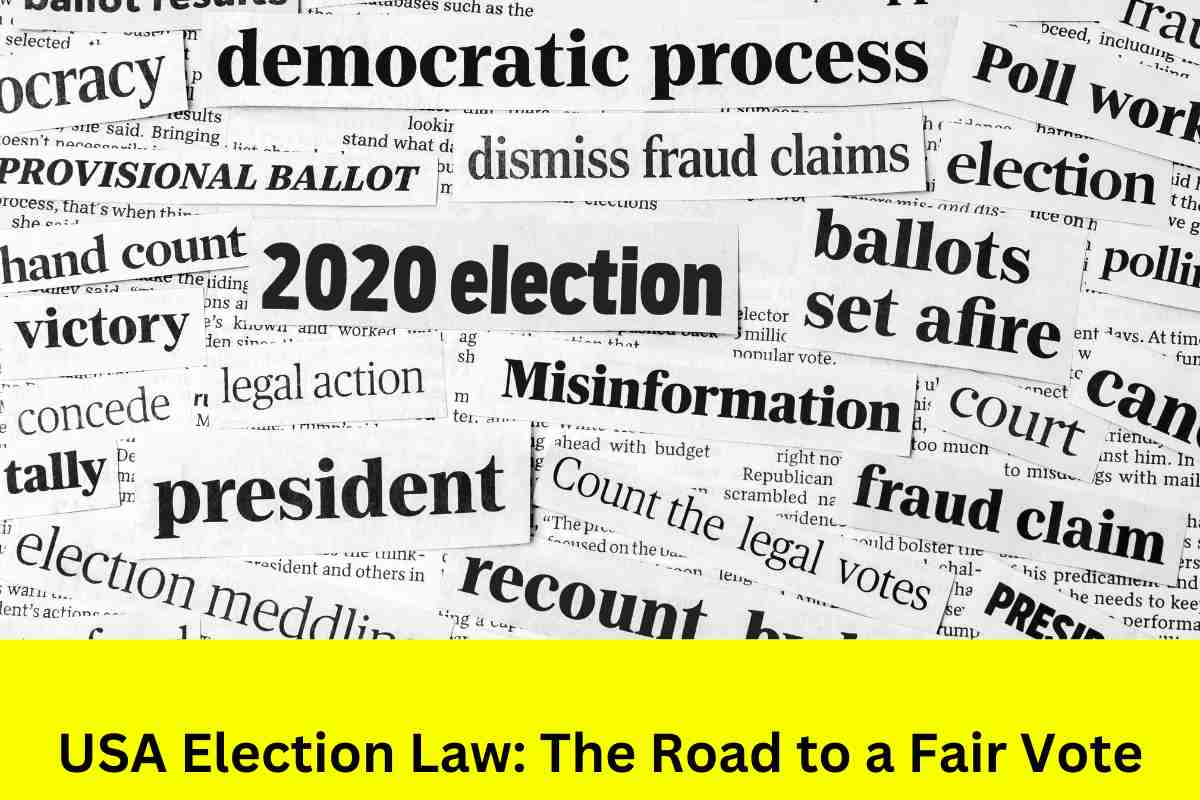The journey towards achieving a fair vote in the United States is intricately interwoven with the nation’s election laws. These laws form the structural foundation upon which the democratic principles of this great nation rest. Through the lens of history, we can observe the evolution of US election Law and its direct impact on fostering a transparent, inclusive, and fair electoral process.
Historical Evolution of USA Election Law
The USA Election Law has undergone numerous transformations since the birth of the nation. The initial steps were taken with the passing of the Constitution of the United States in 1787, which vested the power to regulate elections in the hands of state legislatures. However, this was just the beginning. Over the centuries, several amendments and acts have been enacted to ensure that the electoral process becomes more inclusive and transparent.
Key Legislation Shaping Election Law
The 15th Amendment (1870)
This monumental amendment prohibited the denial of the right to vote based on race, colour, or previous condition of servitude, marking a significant stride towards inclusivity in the electoral process.
The 19th Amendment (1920)
The 19th Amendment broke gender barriers by granting women the right to vote, thus further democratizing the USA’s electoral landscape.
The Voting Rights Act of 1965
A landmark in the fight against racial discrimination, this act aimed to eliminate racial disparities in voting.
The 26th Amendment (1971)
Lowering the voting age to 18, this amendment recognized the voice of the youth in political discourse.
The Help America Vote Act (HAVA) of 2002
Post the 2000 election debacle, HAVA was enacted to modernize the voting systems and ensure a more accurate and accessible voting process.
Contemporary Challenges and Reforms
In recent years, USA Election Law has faced numerous challenges and undergone various reforms to adapt to contemporary needs. Issues such as voter ID laws, gerrymandering, and the Electoral College’s relevance have stirred debates and prompted legislative actions.
Voter ID Laws
The debate surrounding voter ID laws highlights the fine balance between preventing voter fraud and ensuring easy access to the voting booth.
Gerrymandering
Gerrymandering remains contentious, with reforms being advocated to ensure fair representation.
Electoral College Reforms
The call for electoral college reforms resonates with the aspiration for a more direct representation of the people’s will.
The Path Ahead: Striving for a Fair Vote
The quest for a fair vote is a continuous endeavor intertwined with the evolution of USA Election Law. The lessons learned from history and contemporary reforms are instrumental in paving the way towards a more transparent, inclusive, and equitable electoral process.
As we navigate the complex landscape of election laws, fostering a culture of informed dialogue and proactive engagement is imperative. This will not only refine the existing laws but also ensure that the electoral process remains a true reflection of the democratic ethos that the United States holds dear.
The road to a fair vote is paved with the collective efforts of the citizenry, policymakers, and the judiciary. Together, these stakeholders can work towards nurturing a robust electoral framework that upholds the principles of justice, equity, and democracy.
In the realm of digital enlightenment, the significance of being well-versed with the USA Election Law cannot be overstated. It’s not just about casting a vote; it’s about making each vote count in the larger narrative of democratic governance.
Advancements in Election Technology
Technology has become a pivotal part of the electoral process in the modern era. The USA Election Law has also had to evolve to accommodate these advancements while ensuring the integrity and transparency of elections.
Electronic Voting Systems
Electronic voting systems have streamlined the voting process, making it faster and more accessible. However, it has also raised concerns regarding data security and the potential for electronic tampering. Lawmakers and election officials have been working tirelessly to address these issues, ensuring that electronic voting systems are secure and reliable.
Online Voter Registration
Online voter registration has emerged as a convenient alternative to traditional methods, enabling a broader segment of the population to participate in the electoral process. USA Election Law has adapted to this technological shift by establishing the necessary legal framework to govern online registration.
Blockchain in Elections
Blockchain technology has been proposed as a revolutionary solution for ensuring the integrity of elections. By creating a tamper-proof, transparent voting system, blockchain has the potential to significantly reduce electoral fraud and build trust in the electoral process.
International Comparison
It’s insightful to juxtapose the USA Election Law with election laws in other democratic nations. This comparison sheds light on the diverse approaches towards ensuring a fair vote and highlights the potential areas for improvement.
Proportional Representation
Unlike the USA’s first-past-the-post system, many democracies employ proportional representation to ensure a more equitable distribution of parliamentary seats. This system reflects a broader range of political opinions and promotes a more inclusive political dialogue.
Mandatory Voting
Some countries have adopted mandatory voting to promote civic engagement and ensure that the electorate’s voice is fully represented. This approach contrasts with the voluntary voting system in the USA, sparking a debate on the merits and demerits of compulsory voting.
Conclusion
The voyage towards achieving a fair vote is a testament to the dynamic nature of the USA Election Law. The law’s evolution over the centuries reflects the nation’s ongoing commitment to refining the electoral process. As technology continues to reshape the electoral landscape, the USA Election Law must remain agile, adapting to new challenges and opportunities to uphold the democratic principles that define the nation.
The intricacies of USA election Law provide a framework within which the spirit of democracy flourishes. Each amendment, each act, and each reform is a step closer to a more inclusive, transparent, and fair electoral system. As we look towards the future, the continuous endeavour to perfect the electoral process is not just a legal or political challenge but a collective responsibility shared by every citizen.

Leave a Reply